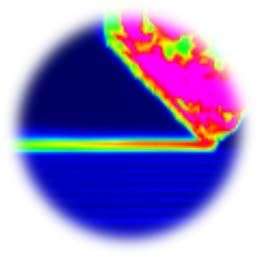NIST releases roadmap for polymer-based additive manufacturing

Additive manufacturing (AM) is a high-priority technology growth area for U.S. manufacturers. Innovative AM processes that fabricate parts layer-by-layer directly from a 3-D digital model have great potential for producing high-value, complex, individually customized parts. Companies are beginning to use AM as a tool for reducing time to market, improving product quality, and reducing the cost to manufacture products. Metal-based AM parts are already in use in a number of applications, including automotive engines, aircraft assemblies, power tools, and manufacturing tools.
In support of the development of polymer-based additive manufacturing, the National Institute of Standards and Technology (NIST) has released the Measurement Science Roadmap for Polymer-Based Additive Manufacturing , a guide that identifies future desired capabilities, challenges, and priority R&D topics in polymer-based AM. The report is the result of the "Roadmap Workshop on Measurement Science for Polymer-Based Additive Manufacturing," held June 9-10, 2016 at the NIST campus in Gaithersburg, Maryland. The workshop brought together nearly 100 AM experts from industry, government, national laboratories, and academia to identify measurement science challenges and associated R&D needs for polymer-based AM systems. The workshop was hosted by NIST, and sponsored by the National Science Foundation, Division of Civil, Mechanical and Manufacturing Innovation and NIST's Material Measurement Laboratory. Additive manufacturing is an important research priority for NIST and a key component of MML's Five-Year Strategic Plan.
By identifying high priority goals and challenges in polymer-based AM, the report can serve as a roadmap for R&D, standards development, and other future efforts. It includes detailed analyses of the complexities surrounding material characterization, process modeling, in situ measurement, performance, and other cross-cutting challenges for polymer-based AM. As such, the report can help guide public and private decision-makers interested in furthering the capabilities of polymer-based AM, and accelerating its more widespread use, and contribute to a robust national research agenda for polymer-based AM.
Provided by National Institute of Standards and Technology


















